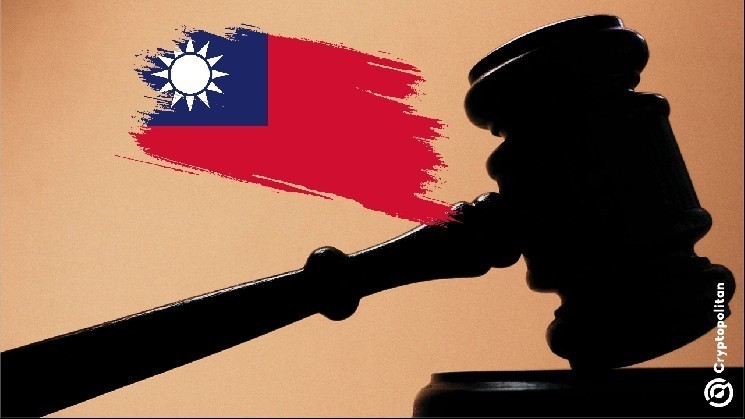Taiwan authorities have taken legal action against Steaker for operating an unauthorized crypto investment scheme. Founder Huang Weixuan and other executives are facing charges for their involvement in the alleged scheme.
The authorities claim that the group used the Steaker platform to raise approximately $45.8 billion through unauthorized crypto investment schemes. The Taipei Prosecutors’ Office confirmed the charges, stating that their actions violate Banking Act rules prohibiting the acceptance of deposits without a license.
Aside from founder Huang Weixuan, Chief Technology Officer Xiu Minje, Chief Marketing Officer Lu Tianxin, and Chief Operations Officer Pan Yiting are also facing charges related to the allegations.
The prosecutors are seeking penalties for the company under the Banking Act, but the outcome of the case is still pending in court.
Taiwan authorities take Steaker platform to court
Huang, a prominent figure in Taiwan’s blockchain industry, traded Bitcoin while studying at the National Taiwan University. He founded Steaker in 2019 after working as a software engineer at Yahoo, accumulating $55 million in assets under management within two years. He is considered a leader in the country’s blockchain sector.
Prosecutors allege that Steaker offered various digital asset investment plans since its establishment, promising investors significant returns ranging from 3.5% to 88% annually. The company raised funds in cryptocurrencies such as USDT, Bitcoin, and Ethereum, claiming to protect user assets through a security fund in partnership with CYBAVO.
The charge sheet accuses Steaker of assuring investors of safeguarding their principal and interests, a practice regulators deem as taking deposits without proper licensing. Over three years, the company attracted hundreds of millions of dollars in Taiwan through its investment plans.
FTX’s collapse in 2022 impacts Steaker
Investigators revealed that once investor funds reached a certain threshold, instructions were given to transfer them to a wallet controlled by Huang on the defunct cryptocurrency exchange, FTX. Huang and his team allegedly engaged in profit trading and high-return lending using the funds.
Steaker faced challenges following FTX’s collapse in 2022, resulting in investor funds being locked on the platform. Unable to meet withdrawal obligations, the company collapsed. Prosecutors claim that some digital assets were transferred from Huang’s FTX wallet to private currency traders’ wallets or used for salaries.
Huang defended Steaker’s operations, stating that the platform utilizes multi-chain asset flow and operations, which should not be classified as money laundering. The company also disputed the prosecutors’ interpretation of the Banking Act, particularly their equating of digital assets with legal tender under the law.

